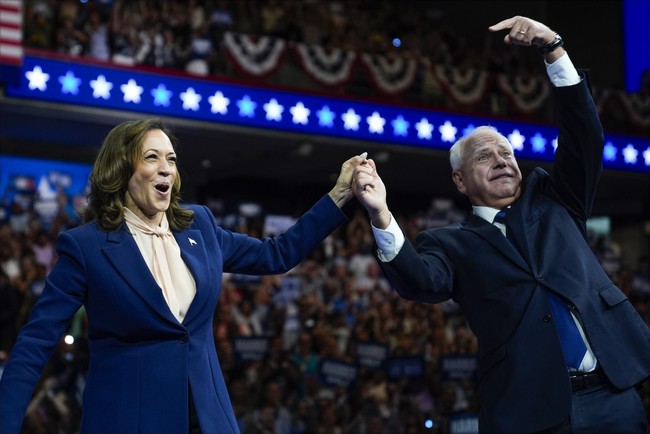From PJMedia.com

The 2024 election marked a significant shift in political dynamics. Democrats, who have long had an advantage on social issues, continued to double down on the most radical of positions, ceding the advantage to Republicans and allowing them to go on the offensive rather than being defensive. For example, the Trump campaign managed to successively use Kamala’s radical positions on gender against her, telling voters, “Kamala is for they/them, President Trump is for you.”
Advertisement
It’s no secret that Democrats now have to reassess their agenda if they want to win back mainstream voters, particularly working-class Americans. These voters, who make up the majority of the electorate, have increasingly become alienated by the party’s focus on identity politics and divisive rhetoric.
According to an analysis from The Washington Free Beacon, internal divisions in the party continue to hinder any real progress in this effort.
At the Democratic National Committee’s winter meeting in Phoenix, party leaders made symbolic gestures that only served to further alienate average voters. A “land acknowledgment” meant to pay tribute to indigenous people was one such gesture, but for many, it felt more like a distraction than a meaningful attempt to address the concerns of working-class voters.
DNC Chairman Jaime Harrison recently lashed out at critics who urged the party to distance itself from identity politics. His defensive response, which included belittling concerns about alienating blue-collar Americans, reflects a broader resistance within the party to change its focus.
Despite these protests, the party’s obsession with identity politics continues to overshadow substantive policy discussions that might attract a broader coalition.
Judson Scanlon, a director of a PAC that sold “White Dudes for Harris” merch, also raised concerns about the party’s fixation on divisive issues. He pointed out that MSNBC often amplifies narratives focused on identity and division, ignoring the practical issues that matter most to everyday Americans.
Advertisement
Even Tim Walz proved that Democrats just don’t get it. In his first post-election interview, he interpreted the election results to mean that Americans seem to prefer racism.
“We were pledging to be inclusive,” Walz lamented. “We were pledging to bring people in. Donald Trump has said that that isn’t what he wants, and so if that’s what America is leaning towards, I guess for me, it’s to understand and learn more about America because I thought that they were going to probably move towards a more positive message.”
Recommended: Let’s End the Legacy Media Together
The problem with that assessment is obvious: Trump did bring people in. He did have a positive message that brought in the most diverse Republican coalition in decades.
But the Democrats’ problems go deeper than misinterpreting election results. Just look at the left’s reactions to Daniel Penny’s acquittal and Luigi Mangione’s cold-blooded killing of UnitedHealthcare CEO Brian Thompson.
Many on the left not only blasted the Penny verdict but also celebrated Mangione as hero. This glorification of violence further distanced the party from mainstream voters, who view such radical positions as out of touch and dangerous.
Taken together, these actions and statements paint a picture of a party increasingly disconnected from the concerns and values of mainstream America. For many working-class voters, the current Democratic rhetoric feels “insane” or out of touch with their daily struggles. As the party’s leadership continues to push for divisive politics and alienate moderate voters, it risks further eroding its appeal to the very constituency it needs to win back in future elections.
Advertisement
If Democrats want to regain the trust of everyday Americans, they will need to reevaluate their focus on identity politics and refocus on issues that matter most to working-class voters. Until then, their struggles to win back the normies will only continue.
All articles possibly rephrased by AI or InfoArmed.com